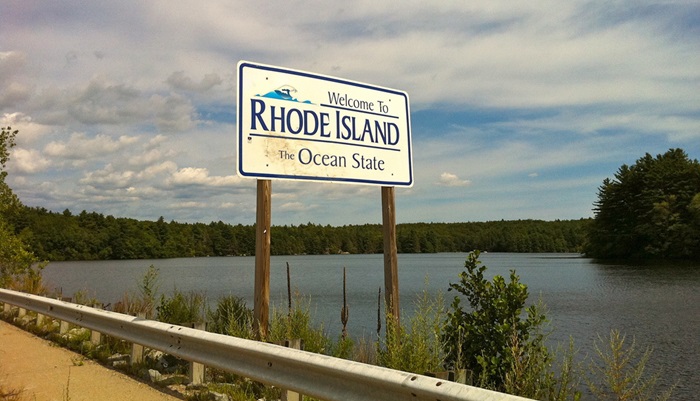New England’s sports betting market just got bigger, as Governor, Gina Raimondo, put pen to paper on Friday signing a $9.6 billion budget for the 2019 fiscal year that begins on July 1, making sports betting legal in Rhode Island.
Reuters reports that the fresh budget for the coming 2019 fiscal year signed by Governor Raimondo gives the smallest U.S. state 51% of the revenues from sports betting wagers. The budget reportedly relies on $23.5 million in new revenue to come from sports betting even though Rhode Islanders will probably have to wait until October 1 for the activity to go live.
While customers will have to wait to take part, Rhode Island could still have a leg up in the New England sports betting market, as across the country states are racing to make the activity legal after the May 14 decision by the U.S. Supreme Court declaring the Professional and Amateur Sports Protection Act (PASPA) unconstitutional. The high court’s ruling overturned the 1992 law that barred sports betting in all but four states.
U.K.-based gaming company, International Game Technology PLC (IGT) (IGT:New York), was reportedly the only bidder to be the small eastern state’s vendor of sports betting technology. The company counts Providence, RI among its seven major North American locations.
Sports bets will be able to be placed at the Twin River Casino in Lincoln as well as the Twin River Tiverton Casino Hotel, which is slated to open in September. The state does not reportedly plan to include online wagering just yet, preferring instead to use a cautious approach.
According to Reuters, that could be disadvantageous for the state, especially if the neighboring state of Connecticut and Massachusetts, at some point in time, allow customers to bet online throughout their respective states.
Connecticut Gov., Dannel P. Malloy, has been back and forth on the issue, having most recently told reporters that legislative leaders communicated that lawmakers are open to sports wagering at brick-and-mortar facilities, but that they reportedly do not feel the same about online sports betting.
Massachusetts meanwhile is looking at legalizing sports betting in early 2019 and does not appear to be in a hurry to delve into the thorny issues of whether or not it would be allowed online and how it would be offered, taxed and regulated.
Spokesman for the Rhode Island Department of Revenue, Paul Grimaldi, said, “We wanted to start small and make sure we have the operational system down pat in the casinos before we explore online or mobile,” according to Reuters.
The Rhode Island Lottery is overseen by the department, and in addition to games of chance such as Powerball and scratch tickets, will reportedly operate sports betting. Grimaldi noted that lottery agents sell those existing games of chance and the state does not want to damage the longstanding relationship it has with them by rushing into online sports wagering.
As it is, the state of Rhode Island will receive $51 from a $100 sports wager lost by a player at one of the two Twin River-owned casinos, with IGT receiving $32 and whichever casino getting $17. However, critics say those high tax rates could be problematic.
“High tax rates hinder the legal market’s ability to compete with shady, illegal operators that don’t pay taxes back to the state,” said Sara Slane, spokeswoman for the American Gaming Association.
Casinos could additionally limit their budgets on promotions due to the low take, with senior analyst for PlayUSA.com, Chris Grover, saying, “The relatively small share allotted for casinos means that those casinos have little incentive to market the product, which will dampen revenue potential,” as reported by Reuters.



